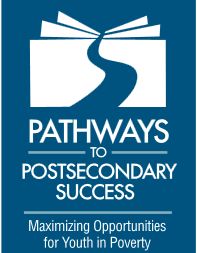Postsecondary Educational Pathways of Low-Income Youth: An Analysis of Add Health Data

By Cynthia Feliciano and Mariam Ashtiani. This study used data from a recent longitudinal survey conducted over a 14-year period to compare the educational pathways of young adults from low-income backgrounds to their middle/high-income counterparts. Specifically, the study examined whether the effect of low-income status in adolescence on postsecondary pathways is better explained by early academic indicators and educational ambitions or higher education enrollment patterns and out-of school responsibilities. The analysis showed that low-income youth are disadvantaged in terms of entry into higher education as well as degree attainment. Roughly half of young adults from low-income families do not complete any postsecondary schooling, and those who do enroll are less likely to earn bachelor’s degrees, partly due to lower educational ambitions and lower academic achievement in adolescence. Post-high school experiences are most decisive, however: Nontraditional patterns of enrollment in two-year colleges, shaped by out-of-school responsibilities such as full-time labor force participation and family obligations, are a key mechanism through which lowincome status in adolescence leads to lower likelihood of degree completion in young adulthood.